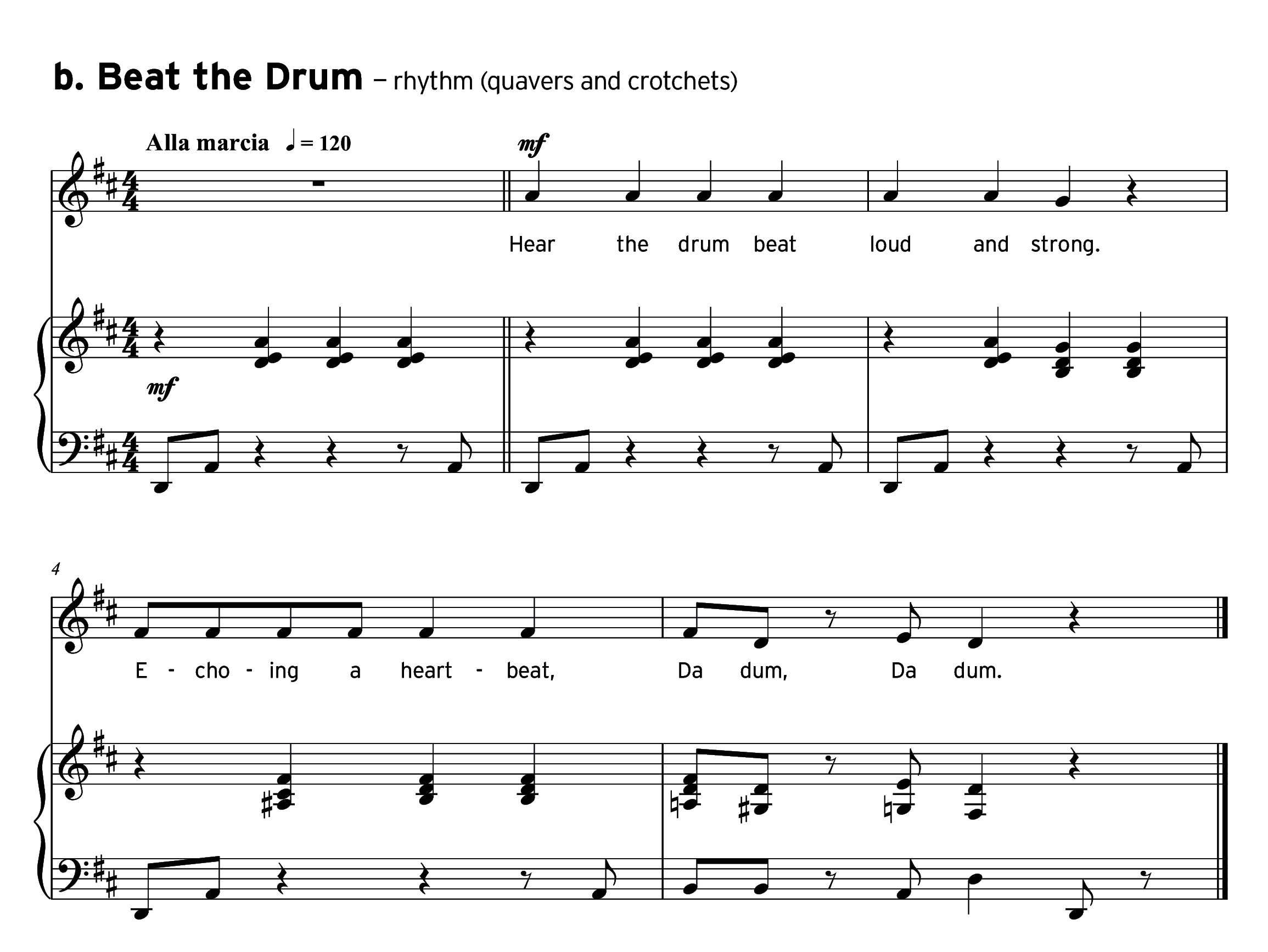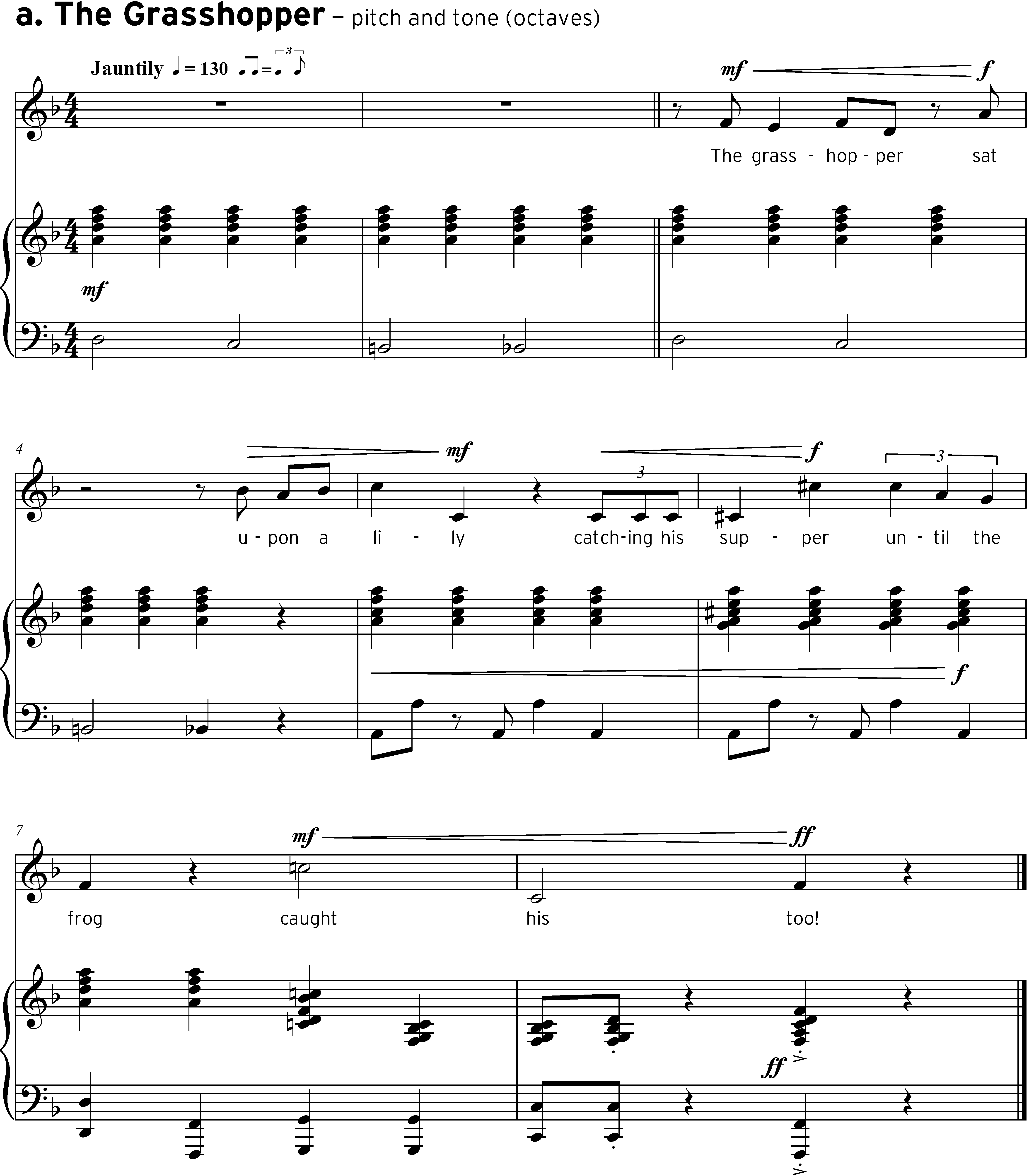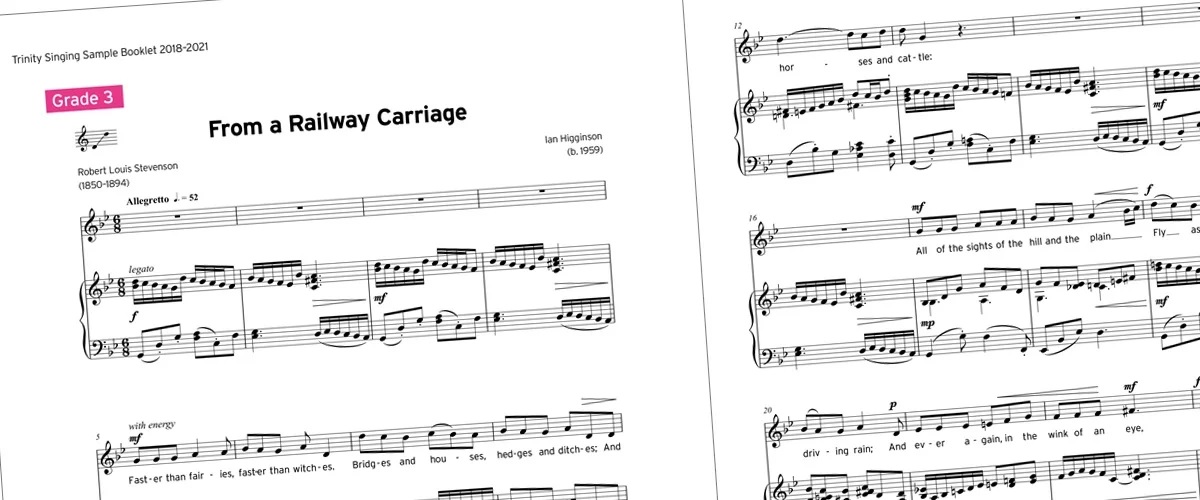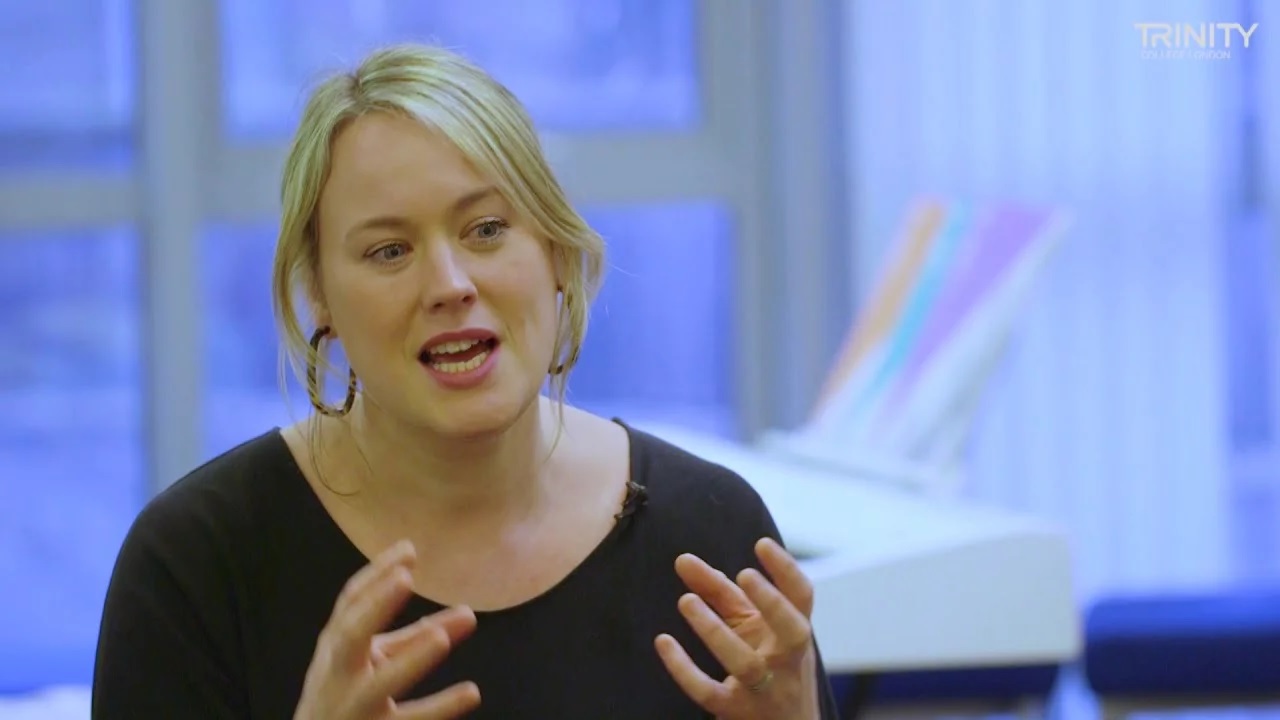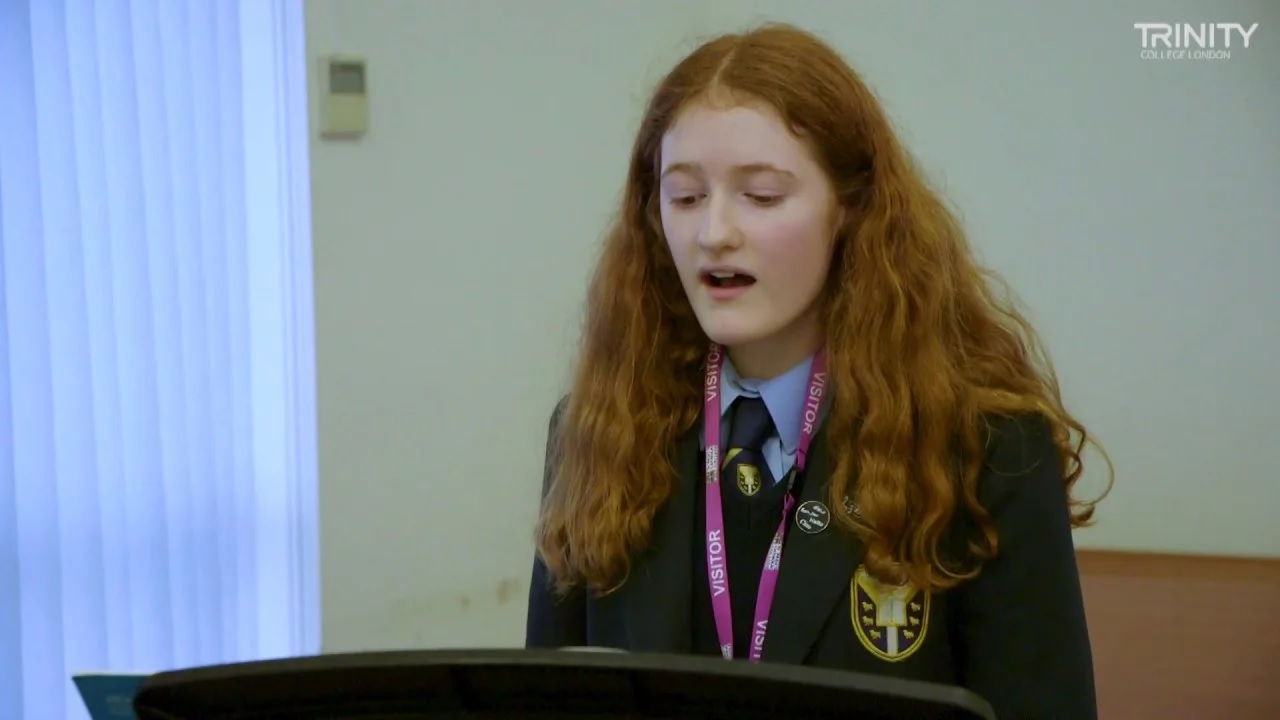Exploring Trinity’s Vocal Exercises

To support teachers and learners working towards a singing exam, Trinity has published Vocal Exercises Initial-Grade 8. Accompanying Trinity’s Singing syllabus, this book features short, fun exercises that have been written to develop the techniques specifically required of vocalists in a performance based context.
In this blog post, we hear from the composer of these exercises, Emily Barden, to find out more about the book and how she hopes the exercises will support students’ skill development and vocal progression.
Emily, can you introduce us to the Vocal Exercises Initial-Grade 8 book?
This book of vocal exercises has been devised as a series of ‘mini songs’. This allows students to develop skills within a performance setting, giving a practical application for each technical focus. Each grade contains three exercises that focus on developing different musical elements related to:
- Pitch and tone
- Rhythm
- Diction
The exercises get technically more challenging, and the piano parts become more independent from the vocal line, as the grades progress, building students’ aural skills and musical independence, whilst maintaining the enjoyment and support of singing with accompaniment.
To help with the piano parts, backing audio is provided (available to download with the ebook edition, also available on CD), allowing the singing teacher to concentrate on the student in front of them – watching, listening and offering areas for improvement and development – rather than being concerned with the accompaniment.
The addition of the backing audio will also help support students with independent practice at home*.
What’s the aim of the book?
Writing these exercises was a lot of fun, as I really wanted each exercise to feel complete as its own piece. It was like writing a songbook of very short songs! The exercises have been written by a professional singer, with the wish to create something that encourages singing students to enjoy the experience of learning – treating them as another performance opportunity, getting under the skin of the songs, rather than a dry exercise to just ‘get through’ for an exam!
Watch Emily introduce the Vocal Exercises Initial-Grade 8 book
Can you give us some examples of the type of thing you look at in the exercises?
Initial Grade: the second exercise ‘Beat the Drum’ looks at rhythm, specifically the difference between crotchet and quavers, using a march feel and theme of a drum echoing a heartbeat to really embed the strong and steady sense of the crotchet pulse. The range is small, spanning a 5th, which is the same across all three Initial Grade exercises.
In the book areas such as range develop as the grades progress, and all three exercises within a specific grade will stick to the range appropriate to that grade.
Moving to Grade 5, the first exercise ‘The Grasshopper’ is focused on pitch, working on developing octave leaps. The theme for the text is a grasshopper, so students get a fun reminder of the big distance required to jump in the octave interval! The dynamic markings for this piece range from mf to a big crescendo ending ff. As with the development of range discussed in the previous example, the ability to control and demonstrate dynamic range is another area that is progressively built upon throughout the grades.
This incremental building of musical features throughout the book reinforces the idea of solid skill development, building a foundation of technique through the exercises that will be transferable across repertoire.
How do these exercises fit into an exam experience?
With the above in mind, it is recommended that teachers introduce the relevant exercises at the beginning of the exam journey, so that time can be spent really embedding the specific skill that each exercise focuses on. If treated like this, students will be developing, building and sustaining skills that will progress their musical and vocal abilities generally, rather than doing an exercise for exercises’ sake.
Within the actual context of the exam, these vocal exercises are the alternative option to singing an unaccompanied folk song or Vaccai. For each grade students learn and perform the three mini songs in the exam from memory, accompanied by their pianist.
Why choose to perform the vocal exercises?
To get the most out of an exam experience, picking the technical option most suited to individual students is the best way to ensure that students’ abilities and voice are showcased to the fullest.
An unaccompanied folk song, for some students, is a time to shine. It presents the opportunity to celebrate the accuracy of intonation and beauty of tone of the voice, as well as allowing skills of story-telling and communication to blossom.
Equally, for some students, the Vaccai exercises are appropriate, especially for those looking to develop their language skills and classical repertoire.
Students who rely on narrative text and story to best communicate a song may respond more positively to vocal exercises. The Vocal Exercises book bridges the gap and presents the chance to sing three bespoke ‘mini songs’, each with a technical focus, all with engaging (and at times funny or moving) text, all specifically written with the purpose of being sung. That might sound obvious, as they are songs, but not all text was written to be sung, and can sometimes feel uncomfortable or unnatural when sung. The pieces are all accompanied, so provide that additional musical support of singing with a pianist.
How else might this book be helpful?
These mini pieces can also be used outside of an exam context, and are a helpful way of being able to target or address the specific needs or areas for development of individual students. If you have a singer who particularly struggles with diction and articulation, for example, you could use just the Diction set of songs in the book as practise exercises throughout that student’s lessons or for home study. The addition of the backing audio makes practising at home much easier.
* The backing audio may be used in place of live piano accompaniment in face-to-face exams, up to and including Grade 3. The backing audio may also be used for Digital Graded Exams at all grades.
Emily trained at Paul McCartneyʼs Liverpool Institute for Performing Arts (LIPA) gaining a BA (Hons) Music specialising in singing and songwriting.
As well as Trinity College London, Emily currently works with a variety of organisations, including Sing Up, Snape Maltings, and West Sussex Music. Emily runs several Community Choirs under the umbrella of West Sussex Sings, and provides vocal consultancy to schools and vocal groups. She runs workshops and courses for singers and training sessions for teachers and people working with young people.
Emily has written many original contemporary songs for young people and community choirs including the Sing Up Day anthems for the last three years which have been performed by over 200,000 people around the world.
Emily is a performer in her own right, touring as a backing vocalist and regularly fronts her own original music project at gigs and festivals.
Buy Vocal Exercises Initial-Grade 8 from the online shop (print edition)
Buy Vocal Exercises Initial-Grade 8 from the eStore (ebook edition)
